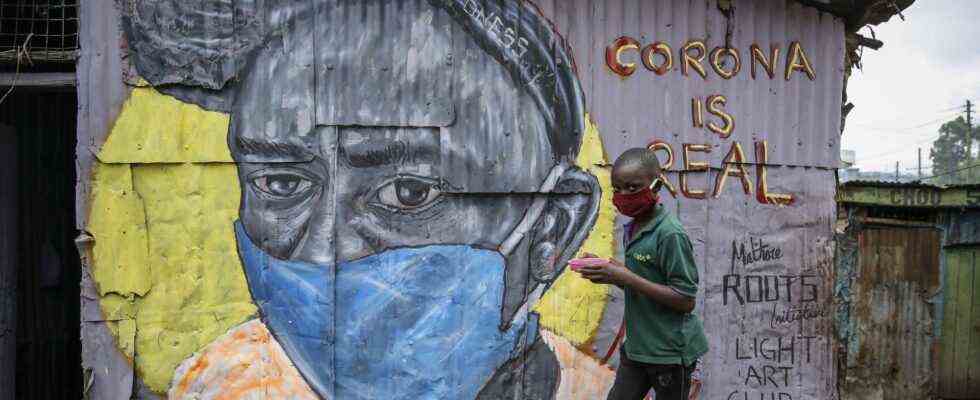Status: December 28, 2021 10:44 a.m.
Only just under 14 percent of the Kenyan population have full vaccination protection against the coronavirus – the reasons for this are varied. The government has tough rules for those who have not been vaccinated. The outrage is great.
Busy traffic at the largest bus stop in Nairobi’s city center. The ticket inspectors at Matatus shout loudly for customers. There is normal chaos. The minibuses are criss-crossed across the square. Dozens of passengers rush in between. Everything should actually be different.
“Everyone has to show a vaccination certificate at all publicly accessible places. This applies, for example, to national parks, hotels, bars, restaurants and local public transport,” said Mercy Mwagangi from the Ministry of Health last Wednesday.
Measures outraged the population
The Minister of Health originally announced the draconian measures to protect against the corona pandemic a good four weeks ago – to the indignation of his compatriots.
Many Kenyans complained that it was a pure dictatorship. Some experts were also skeptical, such as the pathologist Ahmed Kalebi on Kenyan television:
The number of infections is increasing, but not that of the patients in the hospitals. Such protective measures are primarily there to avoid overloading the health system. And at the moment we only have nine patients in the intensive care unit and sufficient capacity.
14 percent of the population with full vaccination protection
Currently, just under 14 percent of the Kenyan population have full vaccination protection through two injections. In the big cities like Nairobi the rate is significantly higher, in the countryside it is much lower. The causes are manifold.
“I can’t waste my time in a vaccination center when I have to work,” said a young woman from Nairobi. In the countryside, vaccination centers are often miles away, making the problem even bigger. Rumors that the vaccine makes you sick or sterile are compounding the situation.
“I don’t trust whites and their vaccines. I’m not afraid. I don’t get vaccinated because I’m sure my immune system is strong enough to deal with any virus,” explains Lavender Sagala.
Not enough vaccine
Categorical vaccination refusals like them are in the minority in Kenya. Most of them want to be vaccinated, but they cannot – also because there is nowhere near enough vaccine available. There are currently just under four million doses, says Willis Akhwale, head of the Covid task force: “We vaccinate 100,000 people a day. At this rate, we will achieve our goal: by the end of the year ten million vaccinations – not ten million fully vaccinated people.” “
Government ignores court order
In a country with almost 55 million inhabitants, many who are no longer allowed to go to the authorities stay in the matatus, not even to go shopping in the supermarket. After violent protests, including by human rights organizations, Kenya’s top judges stopped the directive – and the government promptly ignored it. Steve Ogola, Attorney at the High Court:
On the one hand they say there is no compulsory vaccination, but on the other hand they exclude unvaccinated people from all services. That is exactly what the High Court ruled unconstitutional. The government has issued its directive in dubious circumstances and enforcement will be chaotic – and it will fail.
At the moment it looks like it. The Ministry of Health is threatening license revocation and legal proceedings for anyone who does not require proof of vaccination. But so far the Kenyans have followed the example of their government and simply ignored the directive.
Unvaccinated out! The de facto mandatory vaccination in Kenya
Linda Staude, ARD Nairobi, December 28, 2021 9:39 am

